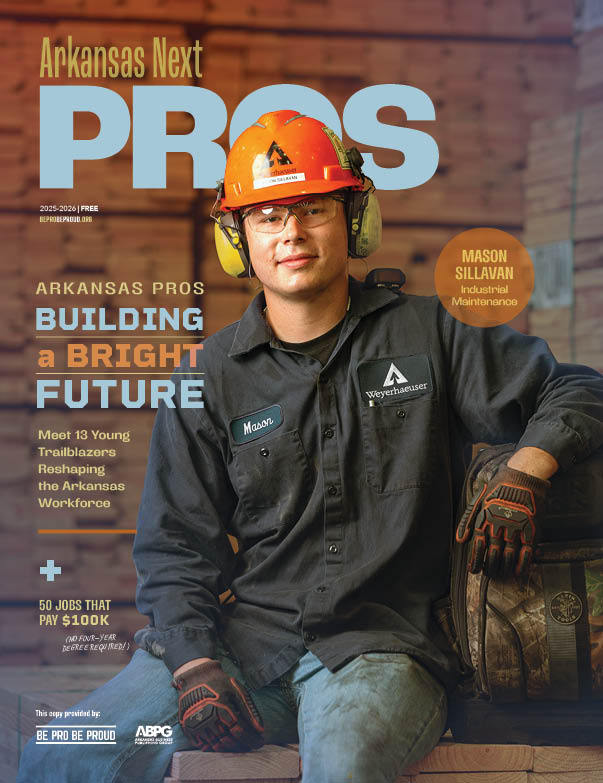How to Move On Up in Tool & Die
By Arkansas NEXT on Friday, September 25, 2020

Two tool and die professionals ascend to management level, and want you to know about the awesome opportunities within the industry.
JASON BURNSIDE
Vice President and General Manager of Tooling Operations, Central Moloney Inc.
Jason Burnside grew up in the tool and die industry. His family owned a small tool and die business in Little Rock, so from a very young age Jason began doing occasional odd jobs around the shop for spending money. Once he became a teenager, he started doing some machining and learned how to operate molding machines. Working with machines and computer-aided drafting inspired him to pursue a degree in mechanical engineering from the University of Arkansas at Little Rock. After college, he worked at A.O. Smith as a manufacturing engineer before opening his own tool and die business — Superior Tool, Inc. — in partnership with his dad, Richard Burnside. The two operated Superior Tool from 1997 to 2018 before selling the company to Central Moloney Inc. in October of 2018. After the sale, Jason joined the Central Moloney team as the vice president and general manager of the tooling division.
Jason’s advice for people looking to get into the skilled trades: “Find apprenticeships that work with your high school for concurrent credit, focus on basic and practical math skills in school.”
Skills that Jason thinks are important to possess in order to advance in the skilled trades: “Hands-on working skills, creative thinking, desire to work with your hands and mind.”
MICHAEL GARNER
President, Phillips Corporation
Michael Garner’s career in the skilled trades began right after high school. While pursuing a mechanical engineering degree at University of Arkansas at Little Rock, he took a job at a local plastic injection molding company. In that role, Michael learned how plastic parts are made and more specifically, how a duck call was molded. His love for hunting and the process of making duck calls fascinated him. The rate at which he was learning, the income he was earning and his passion for the industry caused him to stop pursuing his four-year degree and fully commit to growing within the tool and die industry.
How did you become interested in the skilled trades?
“I was always interested in working with my hands and recognized I was more of an applied learner. Reading comprehension wasn’t my biggest attribute. In high school, I had the opportunity to take auto mechanics and computer electronics repair, neither caused me to go directly into a specific job, but both provided significant benefit to the career path I took.”
What education was required for your first job and how did you progress from machinist to tool and die maker?
“The education that was most valuable was math! Having a mechanical aptitude and being an applied learner made it fun. The job as a tool & die maker was the start of a great career for me. I have been able to leverage everything I’ve learned to grow to my current role, where I lead a company that supplies manufacturing technology, services and processes to many different industries.”
What do you think are critical skills young people should possess or hone to advance in the skilled trades?
“I think the best skill could be a curiosity to learn. I think we all need to be lifelong learners. Certainly, having soft skills, combined with math and science learning, provides benefit to most skilled trades, but willingness and patience to learn are critical. We all need to continue to learn communication, leadership, management and business skills if we desire to grow our career path.”
What advice do you have for people looking to get into the skilled trades?
“Learning a skilled trade will always provide you with an opportunity to have an income. If you can align that skill with a passion you will never feel like you have to work. Skilled trades offer many career growth options and can be the most rewarding careers available. Skilled trades offer many different points of entry, growth opportunities and education opportunities that won’t leave you searching for a job at the end of your education!”














